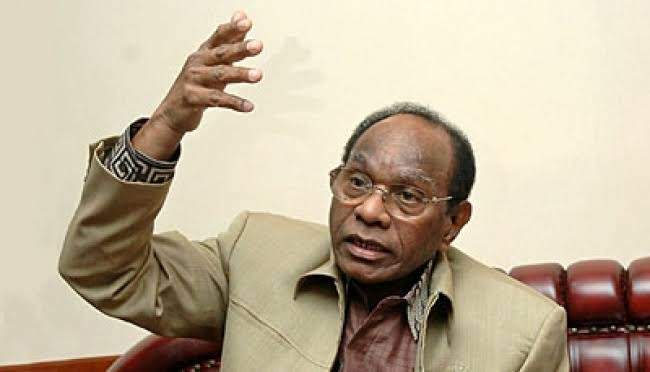Papua — Former Minister of Marine Affairs and Fisheries and prominent Papuan national figure Fredy Numberi has once again voiced his views on Papua’s political status in a video circulating on YouTube and in online media reports. He emphasized that there are widespread public misconceptions about Papua’s symbols—such as its flag and song—which are often mistakenly regarded as state symbols.
In his explanation, Fredy pointed out that many people still assume the Papuan flag is a national flag.
“I keep saying, that is not a national flag,” he stated.
He added that the Netherlands itself referred to it as a land flag—a cultural or territorial flag. The same applies to the song often considered a “national anthem.” According to Fredy, the Dutch called it Volkslied, meaning a folk song, not the anthem of an independent state.
Fredy also dismissed the notion that the Netherlands ever truly intended to grant Papua independence.
“There’s no way the Dutch wanted to make Papua independent. That’s just a dream,” he asserted in the video.
According to him, the Netherlands had geopolitical motives when it administratively incorporated Papua.
“They made Papua a province in the middle of the ocean because they wanted a foothold in Asia,” he said.
He believes this colonial strategy was used to foster division. “That’s why they used Papua as a tool to pit us against each other,” he continued.
Fredy therefore stressed the importance of understanding Indonesia’s full historical context to avoid being easily provoked by external parties. “If we don’t, we’ll be easily manipulated,” he said.
Beyond clarifying misconceptions about Papuan cultural symbols, Fredy Numberi also urged the public to assess Papua’s issues with a clearer, more grounded perspective. He noted that narratives of independence often become distorted when they are not supported by an understanding of colonial history, international law, and the political processes that have taken place.
The senior figure reiterated the need for both the public and the government to focus their energy on development, dialogue, and improving the welfare of Papuans, rather than on historical claims that are taken out of context.

